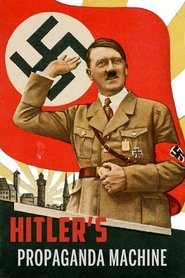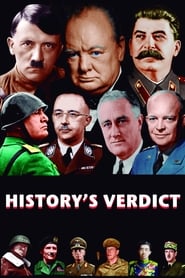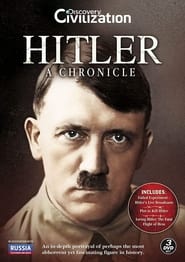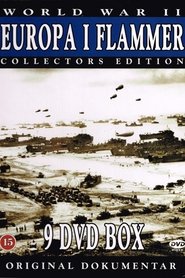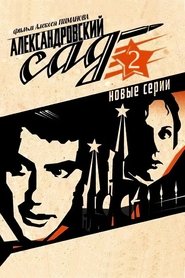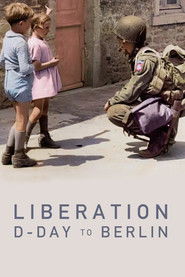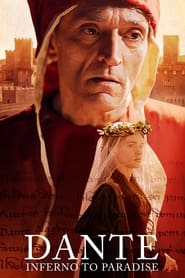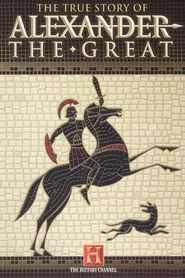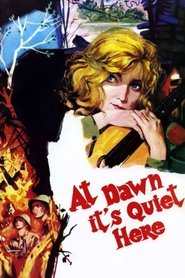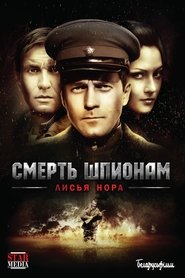Top Rated War Politics TV Series on Amazon Video - Page 10
-
Hitler's Propaganda Machine
2017
star 8Power, terror, performance. These notions define our perception of Adolf Hitler and the Nazi Party at the height of the Third Reich. But behind these impressions Hitler was a rather ordinary man. This compelling new series tells the story of one of the most comprehensive, wide-reaching, and successful marketing campaigns in modern history. It describes in a whole new way the rise of Adolf Hitler. -
Sniper: Weapons of Retaliation
2010
star 6.5This World War II story depicts the personal war between a Soviet sniper and a German sniper. Their feud continues after the war in Soviet-occupied Germany. At the same time, a Nazi rocket scientist continues his research while a Soviet secret police team arrives from Moscow to find hidden Nazi rocket research documents and rocket propulsion systems. -
History's Verdict
2013
History's Verdict
2013
star 6.5A group of history experts from London's King's College has created this documentary series that tries to assess the key political figures of WWII. -
War Factories
2019
War Factories
2019
star 7.5The untold secret story of war production that shaped the Second World War. -
The Stuarts: A Bloody Reign
2018
star 5.5Four kings from the House of Stuart sat on the English throne from 1603 to 1688. It was a time of great religious struggle and political instability. The Gunpowder Plot nearly wiped out King James I. The Thirty Years War broke out on the continent. A civil war erupted which led to the public beheading of King Charles I and the birth of a commonwealth headed by Oliver Cromwell. London was ravaged by the plague and the Great Fire of London. Throughout this series we look at the reign of the Stuarts through the powerful Wynn family at Gwydir Castle in North Wales, one of the best time capsules from that era. The story of the Wynn family reflects the turbulent history of this Stuart era. They had close connections with this new royal house and their status would rise and fall with the successes and failures of Stuart rule. -
Rise of the Clans
2018
Rise of the Clans
2018
star 7.5Series following an epic struggle for power in medieval Scotland, told from the point of view of the feuding clans. -
The Hitler Chronicles
2018
star 8.5The person Adolf Hitler shaped the 20th century like no other. This series documents the Hitler's life using unpublished material. -
Vietnam
1987
Vietnam
1987
star 7The Goddard family is about to be torn apart by the arrival of Australian conscription during the Vietnam War. -
Crusade in Europe
1949
-
Liberation: D-Day to Berlin
2025
star 9Experience the liberation of Western Europe from every angle, as astonishingly colourised and expertly restored footage bring the historic turning point of World War II back to vivid life. -
Dante: Inferno to Paradise
2024
star 6The riveting life and times of Dante Alighieri (1265-1321) and his soaring masterpiece "The Divine Comedy" – one of the greatest achievements in the history of Western literature. -
The True Story of Alexander the Great
2005
star 7Tutored by Aristotle, helpless witness to his father's assassination, and a brilliant, pioneering tactician, Alexander the Great had conquered the known world--and sealed his legacy as one of history's most remarkable rulers--by the age of 25. In the year 334 B.C., 20-year-old King Alexander of Macedonia decided to bring the farthest reaches of the world under one domain. Over the next 12 years, he led a grand army across more than 20,000 miles and eventually brought all of Asia under his control, only to perish from battle wounds at the age of 32. Incorporating dramatic onsite reenactments with high-end computer graphics and the expertise of renowned scholars, THE TRUE STORY OF ALEXANDER THE GREAT is a special presentation from THE HISTORY CHANNEL®, examining the life and career of this military genius, impassioned lover, and fearless leader. -
The Zulu Wars
2002
The Zulu Wars
2002
star 7This series explores the facts and investigates the truth behind the British Redcoat Army's campaign in Zululand during 1879. The war was started by a country at the height of it's imperial powers and prosecuted by an army charged with the responsibility of implementing a policy known as Confederation - a proposal to unite various black and white factions in South Africa under British authority. Interviews, on-location footage and new geological surveys all help to reconstruct the conflicts and give insight into the tactics used in these epic battles. -
А зори здесь тихие
1972
А зори здесь тихие
1972
star 10In a remote village in Karelia, Sergeant Vaskov commands an anti-aircraft unit that protects a rail depot. While his men are transferred to the front line, he is reprimanded for their unruly behavior. He retorts that he wants replacements that aren't drunks or womanizers. In response, he is assigned a unit made up entirely of young women, fresh from training. -
Spies Must Die: The Fox Hole
2013
star 61944. German Colonel Neuber is taken prisoner trying to cross the front-line but not before he hides stolen Soviet documents. The Germans send a team to recover the Colonel and the documents but Soviet intelligence are waiting for them. -
Asian Americans
2020
Asian Americans
2020
star 10This five-part series traces the story of Asian Americans, spanning 150 years of immigration, racial politics, international relations, and cultural innovation. It is a timely, clear-eyed look at the vital role that Asian Americans have played in defining who we are as a nation. Their stories are a celebration of the grit and resilience of a people that reflects the experience of all Americans. -
Slow Burn
2020
Slow Burn
2020
star 8In this adaptation of the award-winning podcast, Slow Burn’s Leon Neyfakh excavates the strange subplots and forgotten characters of recent political history—and finds surprising parallels to the present.
 Netflix
Netflix
 Amazon Prime Video
Amazon Prime Video
 Apple iTunes
Apple iTunes
 Apple TV Plus
Apple TV Plus
 Disney Plus
Disney Plus
 Google Play Movies
Google Play Movies
 Paramount Plus
Paramount Plus
 Hulu
Hulu
 HBO Max
HBO Max
 YouTube
YouTube
 fuboTV
fuboTV
 Peacock
Peacock
 Peacock Premium
Peacock Premium
 Amazon Video
Amazon Video
 The Roku Channel
The Roku Channel
 AMC+
AMC+
 Kocowa
Kocowa
 Hoopla
Hoopla
 The CW
The CW
 Vudu
Vudu
 Starz
Starz
 Showtime
Showtime
 PBS
PBS
 Pantaflix
Pantaflix
 FXNow
FXNow
 Tubi TV
Tubi TV
 Kanopy
Kanopy
 Comedy Central
Comedy Central
 Crunchyroll
Crunchyroll
 Microsoft Store
Microsoft Store
 Redbox
Redbox
 Sun Nxt
Sun Nxt
 ABC
ABC
 DIRECTV
DIRECTV
 Crackle
Crackle
 Fandor
Fandor
 Plex
Plex
